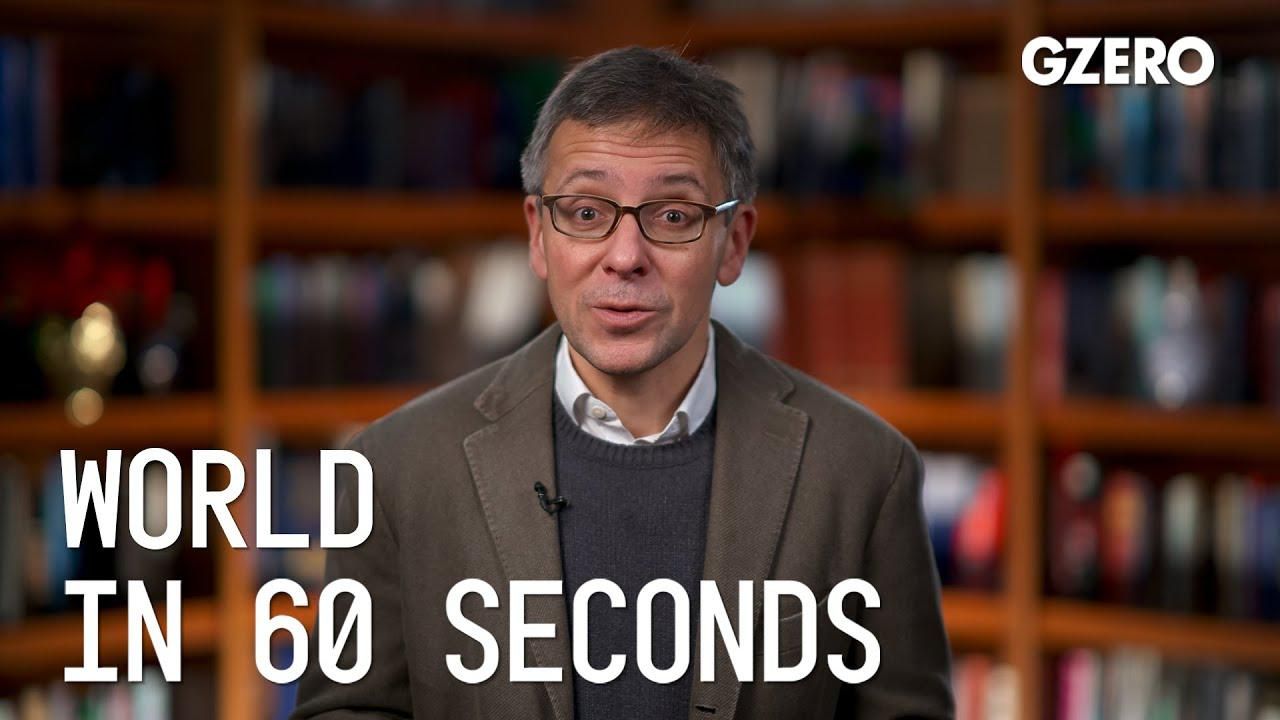Ian Bremmer shares his insights on global politics this week on Omicron, Putin's antics, and Chile's millennial president.
With Omicron cases increasing, is December 2021 really any different than December 2020?
Of course, it's different. You know why it's different? Because so many more people are vaccinated and so many people have already gotten COVID, which means the likelihood that they're going to be severely hospitalized or die goes way, way down. So we should be worrying less individually about COVID even though the policy impact the shutdown impact for at least a few weeks is going to be very significant. And of course, if you haven't gotten your boosters, get those boosters. Of course if you're not vaccinated, I don't know what a booster's going to do for you. Why am I even telling you that?
Why is Putin threatening a military response to NATO?
Well, I mean, first of all, it's kind of what he does, right? I mean, it does sort of go with the job, when you interview for it you have to be willing to threaten a military response to NATO. Secondly, because he controls the media in Russia and they are trying to justify a escalated, recently escalated, military stance. As well as willing to take a more hawkish position against the Ukrainians. And that means you have to justify that NATO is doing stuff against you. And so they've been saying that NATOs sending sort of illicit forces in South Ukraine with chemical weapons capabilities. They're saying that genocide is being perpetrated by the Ukrainians against ethnic Russians. None of this is true, but if you're Russian and all you get for media is Russian state media you actually believe that war is being planned and it's coming from the West. And so in that regard, Putin's ginning up a lot of hostility. What he is going to do with it, of course, is a question for the next couple months. We will see. Certainly it seems like Putin is planning on escalating. I don't think that means invasion, but I do think it means activity against the Ukrainians. We will see what that means.
With Chile electing its youngest president ever, what's next for the country?
Well, I mean, they'll spend a lot more money and they will improve public services. It seemed, I mean, last week an election was hitting both the far left and the far right candidates were moderating their stances to get votes. And that appears to be consistent with the statements that this guy Boric has been making in the days since he's been elected. But this is a huge shift from the wealthiest of South American countries that had been very comfortable with center right policy orientations, it's also got much more unequal. And so this is big backlash and that's why they're redoing the constitution, which is also being controlled by leftist coalition, and it's who the next president is in Chile. So lots afoot in a country that's usually kind of boring and we like it that way.
More For You
41.5%: The proportion of Havana’s garbage trucks that were operational this month, according to state-run media, as Cuba’s fuel crisis prompts a garbage crisis.
Most Popular
Sovereignty has become one of the most powerful, and least defined, words in tech policy. At the 2026 Munich Security Conference, SAP global head of government affairs, Wolfgang Dierker, explains why governments and enterprise customers are demanding more control over their data, cloud infrastructure, and AI systems amid rising geopolitical uncertainty.
On the sidelines of the 2026 Munich Security Conference, Annemarie Hou, Executive Director of the United Nations Office of Partnerships, joined Tony Maciulis to discuss the power of women leaders in global decision-making.
Security in a fragmented world: Cyber deterrence, NATO reform & the future of trusted tech
In a new Global Stage livestream from the 2026 Munich Security Conference, New York Times White House and national security correspondent David Sanger moderates a conversation with Ian Bremmer (President & Founder, Eurasia Group and GZERO Media), Brad Smith (Vice Chair & President, Microsoft), Benedetta Berti (Secretary General, NATO Parliamentary Assembly), and Wolfgang Dierker (Global Head of Government Affairs, SAP) on how technology and defense are colliding in real time.
